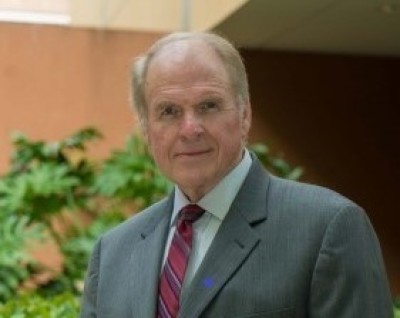Getting to the heart of the 'systemic problem'

Newt Gingrich was fatalistic and frustrated as he wrestled with issues concerning congressional financial accounts while speaker of the House of Representatives, 1995-1999, and labeled the problems as “systemic.”
The concept of “systemic” problems has greatly enlarged in our time. Some cultural observers say there are many “systems of oppression ... woven into the very foundation of American culture, society, and laws,” including “sexism, ableism, and classism.[1]
Gingrich’s view relating to a narrow issue in the 1990s is even more widely applicable now: “Until someone is prepared to lay out the systemic problem, we will simply go through cycles of finding corruption, finding a scapegoat, eliminating the scapegoat, and relaxing until we find the next scandal.”[2]
Yet the problems America faces are systemic. However, the focus of the woke socio-cultural reformers is on the wrong system.
The Bible presents Babylon in the age of Nebuchadnezzar as the prime symbol of the fallen, godless world system. Ultimately, all the nations are snared. The outcome is tragic: “Fallen, fallen is Babylon the great! She has become a dwelling place of demons.... all the nations have drunk of the wine of the passion of her immorality and the kings of the earth have committed acts of immorality with her, and the merchants of the earth have become rich by the wealth of her sensuality...” (Revelation 18:1-3)
The Scriptures present a fallen world in which there is continual conflict between the Kingdom of God and the kingdom of Lucifer. Because humanity represented in Adam “voted” to reject God as King overall, we gave the world to the dark kingdom. (See Genesis 3 and Revelation 12.)
Therefore, the fundamental struggle in the world is between cosmos — order, peace, harmonious relationship — and chaos — disunity, fragmentation, de-creation.
The question humans must resolve individually, institutionally, and nationally, is this: Which will rule, Heaven, symbolized by what Augustine calls the “City of God,” or Babylon, the city of demons?
That is the “systemic problem” that we must “lay out.”
Broadly, the kingdom of Babylon is driven by “the lusts of the flesh, the lust of the eyes, and the pride of life.” (1 John 2:15-17) By contrast, the Kingdom that is the “city of God” is characterized by righteousness-justice, peace, and transcendent joy. (Romans 14:17)
Major influencers quickly relegate the spiritual problem to myth and irrelevant religion, propagated by what they consider crazed un-woke preachers.
Until the systemic problem is treated as the spiritual issue it really is, no one can accurately “lay out” the systemic tangle, no matter how many laws are passed, and executive orders issued.
In that sense, many of our greatest influencers are like cancer specialists who refuse to deal with a tumor because they don’t like its classification.
Dr. Martin Luther King Jr. had no problem with “laying out” the racism issue as primarily spiritual. He spelled it out in his “Letter From the Birmingham Jail.”
As a member of the editorial staff of The Birmingham Newsin the late 1960s and into the 1970s, I was assigned to dig deeply into the city’s civil rights crisis. One of the most revealing documents was Dr. King’s letter to the city’s white pastors.
“I am in Birmingham because injustice is here,” he wrote.
Dr. King left no doubt that he saw racism as a spiritual problem: “A just law is a manmade code that squares with the moral law of God... To put it in the terms of St. Thomas Aquinas... an unjust law is a human law that is not rooted in eternal law and natural law.”
So, as long as the powers and people of a society refuse to recognize the true nature of the Babylonian world system and its systemic poisoning of cultures, there will be no healing.
Dr. King put it like this:
“There was a time when the church was very powerful...In those days the church was not merely a thermometer that recorded the ideas and principles of popular opinion; it was a thermostat that transformed the mores of society. Whenever the early Christians entered a town, the people in power became disturbed and immediately sought to convict the Christians for being “disturbers of the peace” and “outside agitators.”’ But the Christians pressed on, in the conviction that they were “a colony of heaven,” called to obey God rather than man... By their effort and example, they brought an end to such ancient evils as infanticide and gladiatorial contests.”
In our day, the church must not expect society — including political leadership — to address and solve the systemic problems until it begins to repent for its own capitulations to the world system and proclaims the Kingdom of God and His rulership over all His creation.
But secular powers must see the systemic problem as a spiritual crisis that can only be healed by the transformational touch of God. They must seek to “square” human contrived civil law with the “moral law of God,” as Aquinas and Dr. King said.
There is no hope in “laying out” the systemic problem and excising it from society until we all — including the lofty establishments that promote the Babylonian world system and its worldview — humble ourselves and say, as Isaiah did centuries ago: “I am a (person) of unclean lips, and I live among a people of unclean lips...” and when God asks “Whom shall I send” to proclaim His truth, we respond, “Here am I, send me.” (Isaiah 6:1-9)
Then and only then will we get to the heart of “systemic oppressions” that are bringing chaos to whole nations.
[1]Social Identities and Systems of Oppression | National Museum of African American History and Culture
[2]THE HOUSE BANK; Gingrich Takes No Prisoners in the House's Sea of Gentility - The New York Times (nytimes.com)
Wallace B. Henley’s fifty-year career has spanned newspaper journalism, government in both White House and Congress, the church, and academia. He is author or co-author of more than 20 books. He is a teaching pastor at Grace Church, the Woodlands, Texas.
For media inquiries, contact: ChristianPost@pinkston.co




























